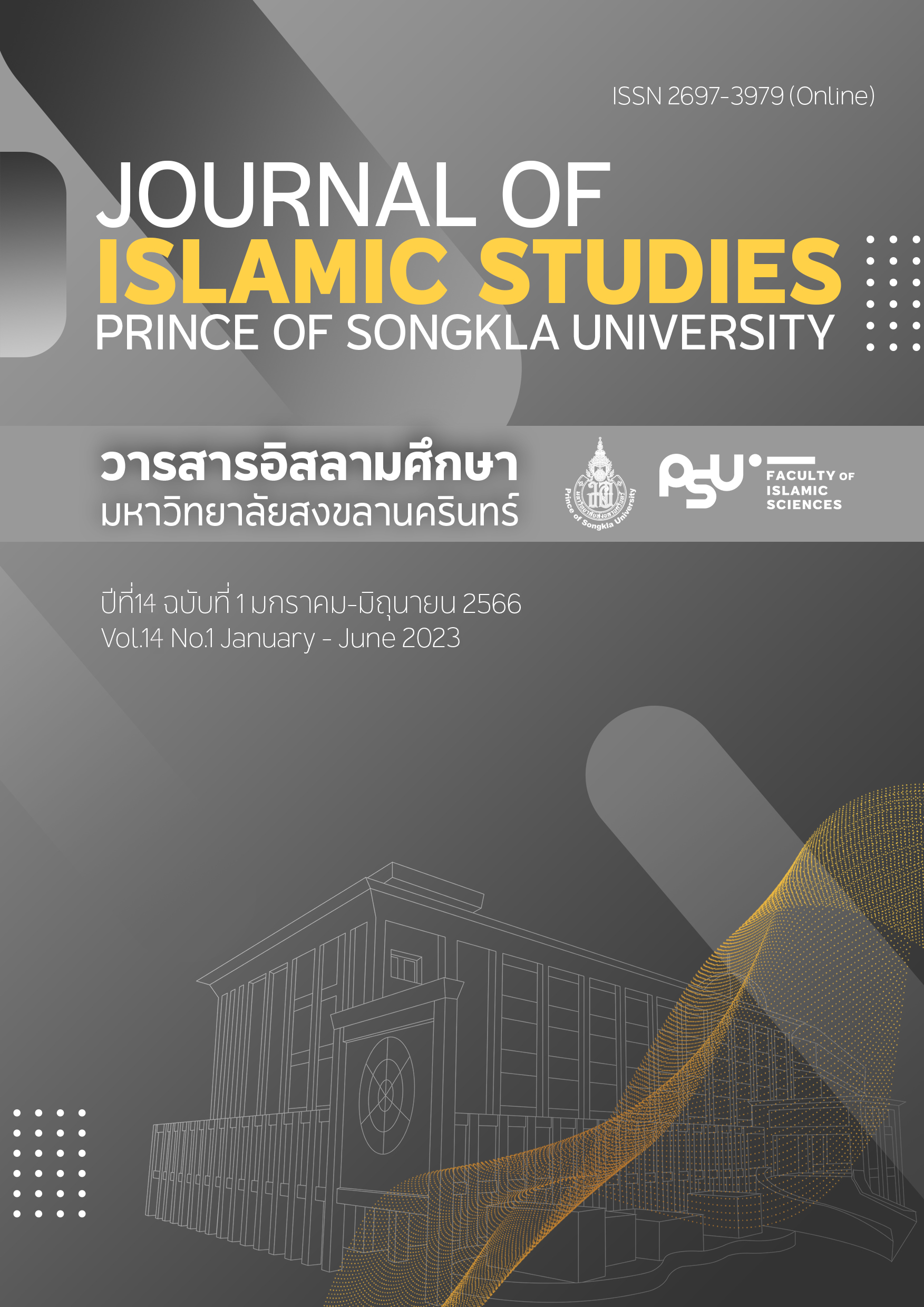The Development of Waqf Properties in Thailand Context: Challenges and Opportunities
Keywords:
Waqf properties, Thai Muslim, Waqf challenges, Islamic EconomicsAbstract
Objective The research objective is to investigate challenges of waqf management among Islamic committees of mosques in Thailand. Hence, this study focuses on waqf properties management in the Thai Muslim context about perceptions and obstacles that occurred in administrating waqf properties.
Methodology This study is used a qualitative method. A purposive sampling is used with the specific characteristics comprises 8 Waqf officers in this case the researcher wants to know their perspective and obstacle on waqf management. The data were gathered through in-depth interviews. Information derives from the data collection is proceed to the analysis in qualitative content in order to represent the finding in a descriptive pattern.
Research Finding The results showed that the key challenges of Waqf management in Thailand are the limitation of Thai laws, the traditional methods of Waqf investment and the lack of understanding of Waqf properties investment.
Application The results of this study contribute to Waqf manager perceptions and the Islamic authorities especially in terms of the development of Waqf properties in Muslim minority countries. Furthermore, this study provides information in terms of the significance of Waqf institution towards the socioeconomic development of the Muslim societies.
References
Abdul Majid, R., & Said, R. (2014). Permasalahan Pengurusan Hartanah Wakaf Di Malaysia. International Surveying Research Journal(ISrJ), 4(1), 29-43.
Boonchom, A. (1996). Al fiqh (Islamic Law) Principle and Evidence from AlQuran and Hadith. Manop Wongsangiam Book center.
Cizakca, M. (2000). A history of Philanthropic foundations: The Islamic World from the Seventh Century to the present. Bogazici University Press.
Creswell, J. W. (2013). Qualitative inquiry and research design: Choosing among five approaches. Thousand Oaks. Sage.
Dafterdar, M. H. (2011). Toward effective legal regulations and an enabling environment for inalienableMuslim Endowments (awqaf). Islam and Civilisational Renewal, 2(4), 654-668.
Department of Administrative Affairs. (2018). Statistics on the number of mosques in Thailand. Division for Promotion of Islamic Organizations and Hajj Affairs Islamic Organization Administration Act 1997. (1997, 17 October). Government Gazette. Volume 16, chapter 107.
Denscombe, M. (1998). The good research guide for small scale social research project. Open University Press.
El Daly, M. (2001). Islamic benevolence: The donation in Islamic point of view. The Center for The Research on Benevolence. City of University of New York.
Ghoneima, A. (2002). Waqf properties in education and culture in modern societies: Islamic affairs. Islamic Committees.
Ibrahim, D., & Ibrahim, H. (2020). Governance, Location, Size and Waqf Efficiency in Malaysia. International Journal of Academic Research in Business and Social Sciences. 10(10), 589-612.
Kahf, M. (1998). Waqf properties and its utilization in north america. Indiana United state of America: Isna Plainfield.
Khan, M. F., & Mirakhor, A. (2013). Islamic finance: Overview and policy concerns. International Monetary Fund.
Khan, M. T. (2015). Historical Role of Islamic Waqf in Poverty Reduction in Muslim Society. The Pakistan Development Review, 54(4), 979–996. http://www.jstor.org/stable/43831378
Kuran, T. (2001). The provision of public goods under Islamic law: origins, impact, and limitations of the waqf system. Law & Society Review, 35(4), 841-898.
Mastura, M. (2001). The making of civil society through waqf institution in Midnao, in Mitsuo et al (eds). Islam and Civil Society in Southeast Asia. Institute of Southeast Asian Studies.
Mertens, D. M. (1998). Research methods in education and psychology: Integrating diversity with quantitative & qualitative approaches. Sage Publications.
Mohsin, I. M. (2013). Financing Through Cash-Waqf: A Revitalization to Finance Different Needs. Emerald Insight, 304-321.
Nurul, I., Adi, S., & Edi, K. (2020). Online Based Waqf Management System in Indonesia: A New Model in Management of Waqf Administration. International Journal of Innovation, Creativity and Change, 10(11), 164-180.
Obaidullah, M. (2016). A framework for analysis of Islamic endowment (waqf) laws. International Journal of Not-for-Profit Law, 18(1), 54-64.
Sabeq, S. (1999). Fiqh al sunnah: Al zakat wa al sadaqat. Dar Al Fath Al Arabi.
Sarantakos, S. (1998). Social research. Macmillan.
Sujono, R. I., Wibowo, F. W., Rafi’, M., & Musoffi, A. (2022). The Effectiveness and Efficiency of Cash Waqf Management in Tabung Wakaf Indonesia. Jurnal Ilmiah Ekonomi Islam, 8(02), 1442- 1447.
Sulaiman, M., & Zakari, M. A. (2013). Efficiency and effectiveness of waqf institutions in Malaysia: toward financial sustainability, Paper Presented at the 9th International Conference on Islamic Economics and Finance, Istanbul, Turkey, 9-10 September.
Rozalinda. (2015). Manajemen Waqf Produktf. Raja Grafndo Persada.
Umar, U. H., & Haron, M. H. (2021). Accounting for Waqf Institutions: Business, Not-for Profit or Hybrid Entities. International Journal of Islamic Economics and Finance (IJIEF), 4(2), 293–314.
Downloads
Published
How to Cite
Issue
Section
License
Copyright (c) 2023 © The Author(s). Published by the Journal of Islamic Studies, Prince of Songkla University under the Creative Commons Attribution 4.0 International License.

This work is licensed under a Creative Commons Attribution 4.0 International License.
All articles Published in The Journal of Islamic Studies are author’s opinions, and not the responsibility of the Faculty of Islamic Sciences nor the editorial board. However any citation should be referred to the journal.
















